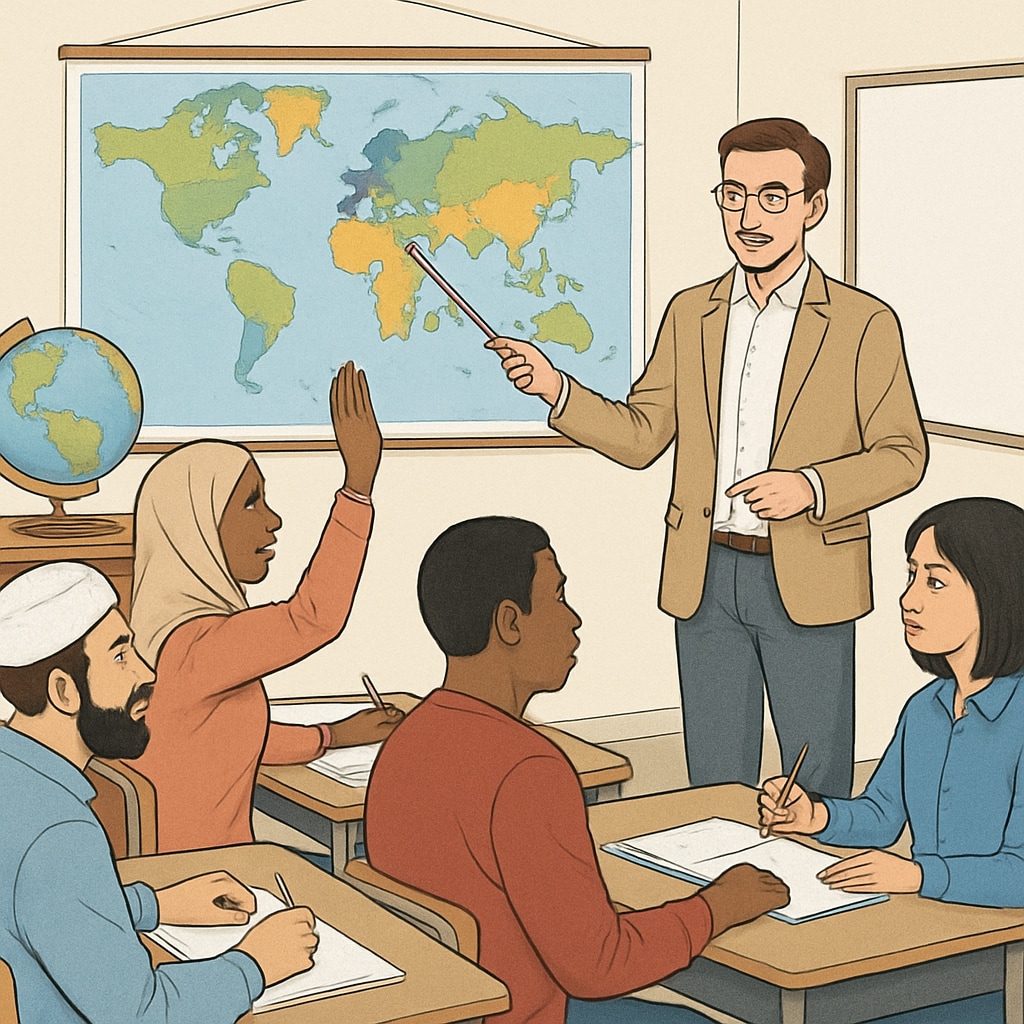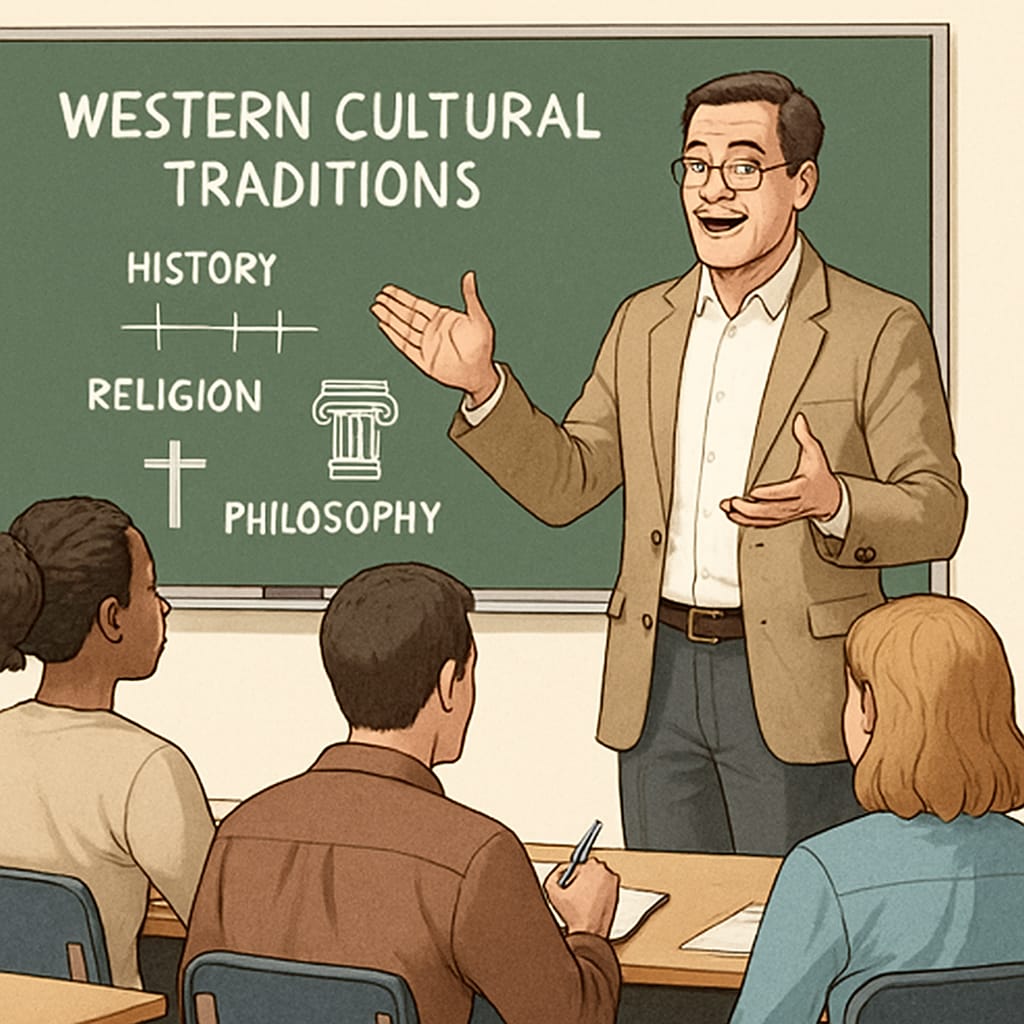When foreign adults step into a Western society, the challenges they face often extend beyond language barriers. A lack of foundational knowledge in subjects like history, geography, and cultural studies can create significant hurdles in understanding and engaging with their new environment. Addressing these gaps through targeted foundational education is critical for promoting cultural adaptation and social integration. By offering well-structured courses, these individuals can gain the necessary tools to bridge cultural divides and participate more fully in Western life.
Understanding the Need for Foundational Education
For many foreign adult learners, foundational subjects like history and geography are not just academic topics—they are keys to understanding the cultural and social fabric of their new homes. Without a grasp of these subjects, even simple interactions can feel alienating. For example, understanding Western holidays, political systems, or historical events can be challenging without prior exposure.
In addition, a lack of knowledge in these areas may lead to misunderstandings or even feelings of exclusion. This is particularly true in social or professional settings, where cultural awareness plays a vital role. Foundational education, therefore, becomes not just an academic pursuit but a practical necessity.

Designing Effective Courses for Cultural Adaptation
Creating effective courses for foreign adult learners requires a tailored approach. Generic lessons are unlikely to address the specific challenges faced by this demographic. Instead, courses should focus on:
- Localized Content: Teaching history and geography relevant to the host country helps learners connect with their surroundings.
- Interactive Methods: Group discussions, role-playing activities, and multimedia resources can make learning engaging and practical.
- Cultural Context: Lessons should include cultural norms, traditions, and societal values to provide a holistic understanding.
Programs like these not only build academic knowledge but also foster confidence and a sense of belonging. For example, understanding the significance of national holidays or the basics of Western political history can empower learners to engage in meaningful conversations and community activities.
The Role of Educators in Bridging Gaps
Educators play a crucial role in facilitating cultural adaptation through foundational education. They must be sensitive to the diverse backgrounds of their students and adapt their teaching methods accordingly. For instance:
- Using Simple Language: Avoiding overly complex terminology ensures that all learners can follow along.
- Encouraging Questions: Creating a safe space for questions can help students clarify doubts and build confidence.
- Incorporating Real-Life Scenarios: Using practical examples, like navigating public transportation systems or understanding local traditions, makes lessons immediately applicable.
Moreover, educators should actively seek feedback from learners to continuously improve their teaching strategies. This iterative process ensures that the courses remain relevant and effective.

Benefits of Foundational Education for Social Integration
The benefits of foundational education extend far beyond the classroom. By equipping learners with essential knowledge, these programs enable them to:
- Engage Socially: Participate confidently in conversations and community events.
- Advance Professionally: Navigate workplace cultures and expectations more effectively.
- Achieve Independence: Understand local systems, such as healthcare and transportation, without relying on others.
As a result, learners not only adapt to their new environments but also contribute positively to their communities. This mutual exchange enriches both the learners and the societies they join.
Conclusion: A Pathway to Inclusion
Foundational education is more than an academic endeavor—it is a pathway to inclusion and empowerment. By addressing gaps in knowledge and fostering cultural understanding, these programs help foreign adult learners adapt to Western societies with confidence and ease. As educators, policymakers, and community leaders, investing in such initiatives is an essential step toward building more inclusive and cohesive communities.
For more insights into cultural adaptation and foundational education, explore resources like the Cultural Adaptation page on Wikipedia or the Adult Education section on Britannica.
Readability guidance: This article uses concise paragraphs, lists for clarity, and a balanced tone to ensure accessibility for a broad audience.


